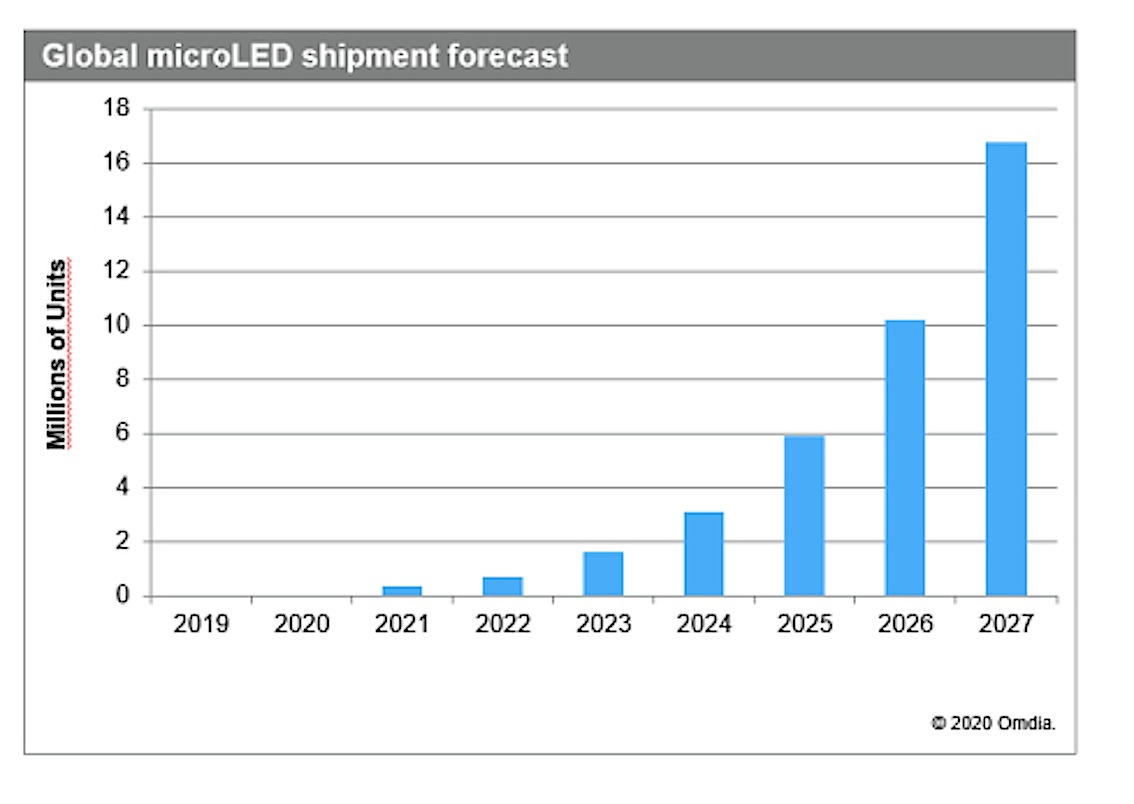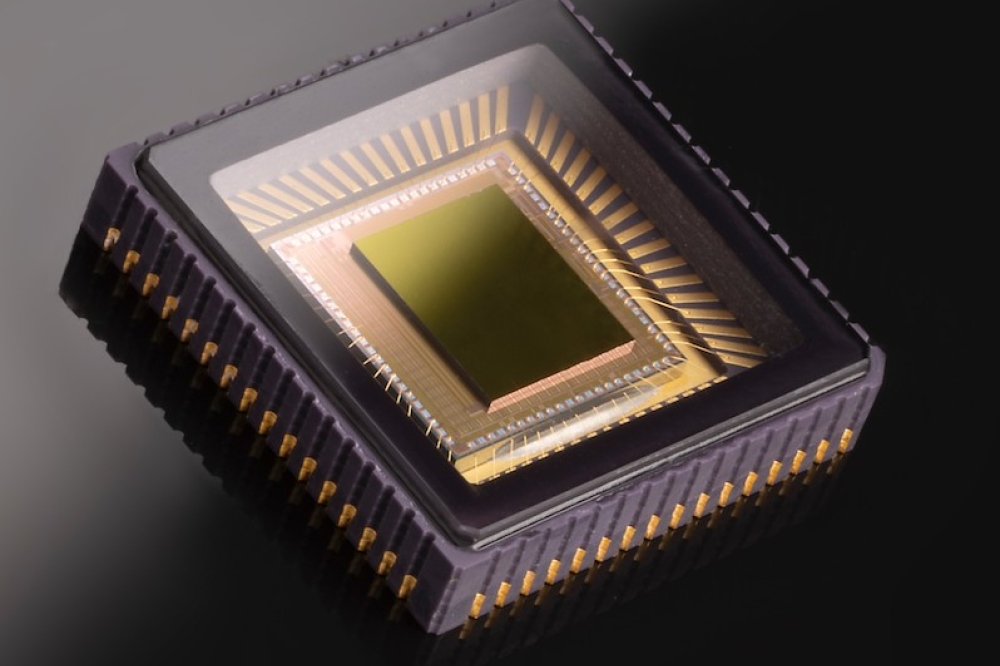MicroLED display shipments to reach 16.7 million units in 2027

Demand from smartwatches and TVs drives market growth, says Omdia
Driven by increasing demand for innovative, self-emissive displays, global shipments of micro light-emitting diode (microLED) displays are expected to soar to more than 16 million units by 2027, up from negligible levels in 2020.
MicroLED display shipment growth is being led by demand from the smartwatch and television markets, according to the MicroLED Display Technology and Market – 2020 report from Omdia. Shipments of MicroLED displays to the smartwatch market are expected to exceed 10 million units in 2027, while shipments to the TV industry are expected to grow to more than 3.3 million units during the same year.
“Because of their superior luminance efficiency compared to rival organic light-emitting diode (OLED) displays, microLED displays are expected to become the next self-emissive display technology,” said Jerry Kang, associate director at Omdia. “Numerous startups, display manufacturers and consumer brands now are developing their own microLED displays, devices and process in various sizes, ranging from medium-to-large sizes to ultra-small dimensions.”
MicroLEDs represent an emerging flat-panel display technology that employs arrays of microscopic LEDs to comprise the individual pixel elements. Compared to conventional LCD displays, microLED displays can deliver superior contrast, faster response times and reduced energy consumption. As mentioned, microLEDs also offer superior luminance efficiency compared to OLEDs. As a result, microLED technology is expected to emerge as a competitor to LCDs and OLED displays in applications ranging from wearable devices to televisions.
Several major technology players are taking steps to improve microLED technology and manufacturing.
Taiwanese firm AU Optronics recently introduced a prototype 9.4-inch flexible display using blue microLED pixels under red and green color-conversion filters on low-temperature polysilicon (LTPS) plastic substrate.
Plessey Semiconductors announced it will help Facebook prototype and develop new technologies for potential usage in the augmented reality/virtual reality space. Samsung Electronics in 2018 introduced a prototype TV with a chip-on-board (COB) processed RGB microLED display. The company plans to launch the product in 2020.
Samsung Display has also started development of quantum dot nanorod LED (QNED) technology, which applies nano-tube LEDs onto an oxide TFT glass substrate. Furthermore, many consumer brands are expected to release their own microLED displays or devices in the near future.
“The microLED market is poised for much more rapid growth once the technologies for manufacturing microLED chips—including mass transfer—gain more maturity,” Kang said. “The growing use of microLED display technology will push display makers to evolve away from current LCD and OLED display technologies.”


































